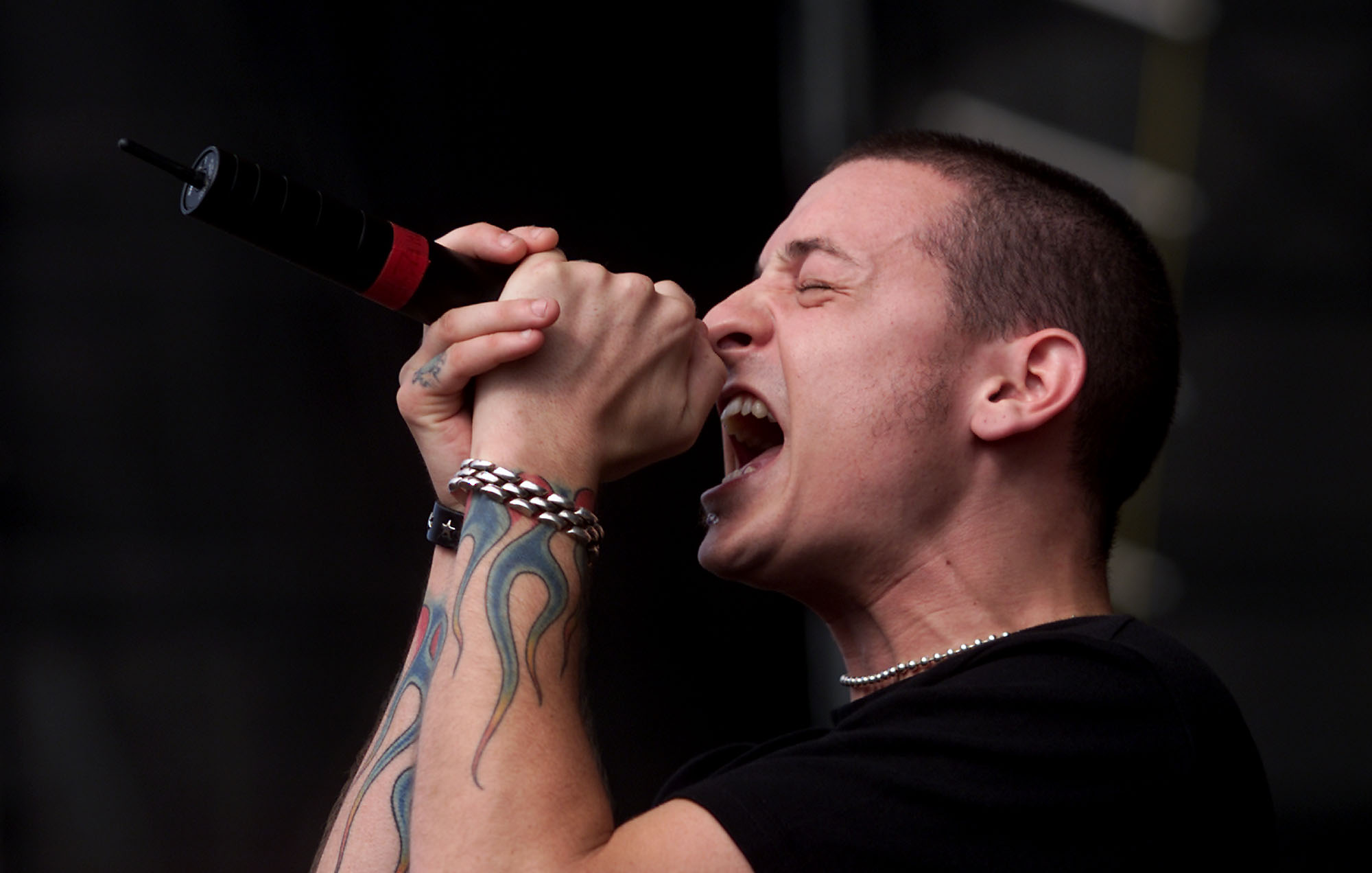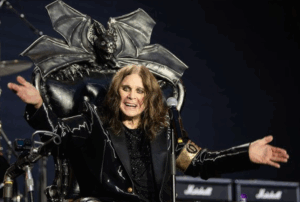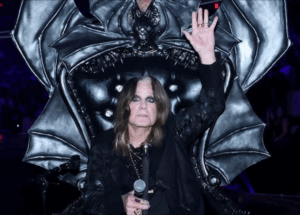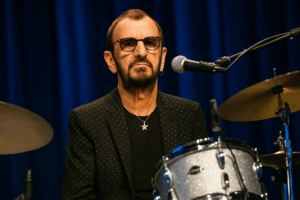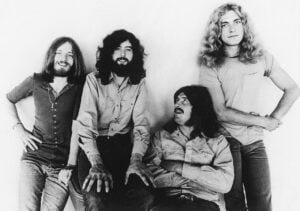20 Forgotten Frontmen Classic Rock Fans Forgot Existed
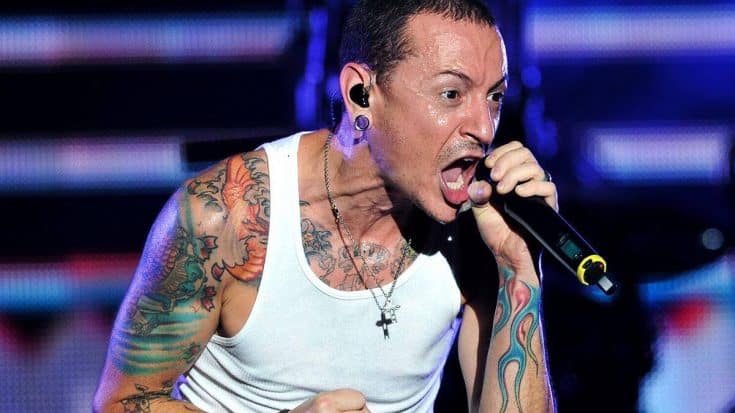
Not every frontman makes an impression, but lead singers frequently steal the show. Band lineup changes frequently occur as a result of conflicting personalities, shifting preferences, or the allure of new chances. Vocalists may fill in before the band achieves success, while others must deal with the difficulty of taking the place of a cherished legend.
Consider Jeff Scott Soto, who took on the difficult role as frontman for Journey following Steve Perry. Or Bekka Bramlett, who forged her own personality while making her impact in Fleetwood Mac. You might be surprised to learn that these 20 frontmen and women were formerly in the spotlight.
Dave Evans (AC/DC)
Before Bon Scott became the iconic voice of AC/DC, Dave Evans held the mic. Born in Wales and raised in Australia, Evans fronted the band during their early days, transitioning from cover songs to originals. He even sang on their debut single, 1973’s “Can I Sit Next to You, Girl.” But by 1974, Evans was out. “I wasn’t getting on with any of them,” he later shared. “Malcolm Young was jealous… I happened to be popular with the girls, and he didn’t have a girlfriend.” Evans also cited financial struggles: “We were playing major shows, sometimes two or three a night, but we were flat broke, pooling money for hamburgers. So I left the band.”
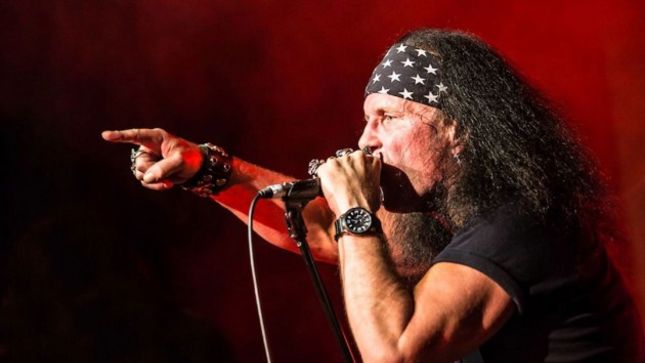
Robert Fleischman (Journey)
Journey didn’t start with a typical frontman, as keyboardist Gregg Rollie handled vocals. When album sales faltered, the label brought in Robert Fleischman in 1977. Touring with Emerson, Lake & Palmer and REO Speedwagon, Fleischman faced tough crowds. “The front row… would flip me off and say, ‘Fuck you!’” he recalled. “It was hard for them to see a frontman.” After a few months, Fleischman was replaced by Steve Perry, but his impact remained. He co-wrote three tracks on Journey’s 1978 Infinity album: “Anytime,” “Wheel in the Sky,” and “Winds of March.” Fleischman later worked with Asia and ex-Kiss guitarist Vinnie Vincent and reunited with Journey in 2005 for their Hollywood Walk of Fame celebration.

Jeff Scott Soto (Journey)
Steve Augeri stepped in as Steve Perry’s first successor but left in 2006 due to severe vocal issues. With a major tour alongside Def Leppard already booked, Journey needed a quick replacement. Enter Jeff Scott Soto. “They were in a bind,” Soto shared in 2019. “Sending everybody home would have cost them millions… Neal [Schon] knew I could step up without a single rehearsal.” Despite his efforts, fans still compared him to Perry. “They’re gonna bag on you… ‘We want Perry,’” Soto said. Initially told he’d be Journey’s permanent singer, Soto was soon replaced by Arnel Pineda, with the band later denying he was an official member. “Hearing Neal say I was their new singer… to not have that acknowledgment now, it just hurts,” he admitted.
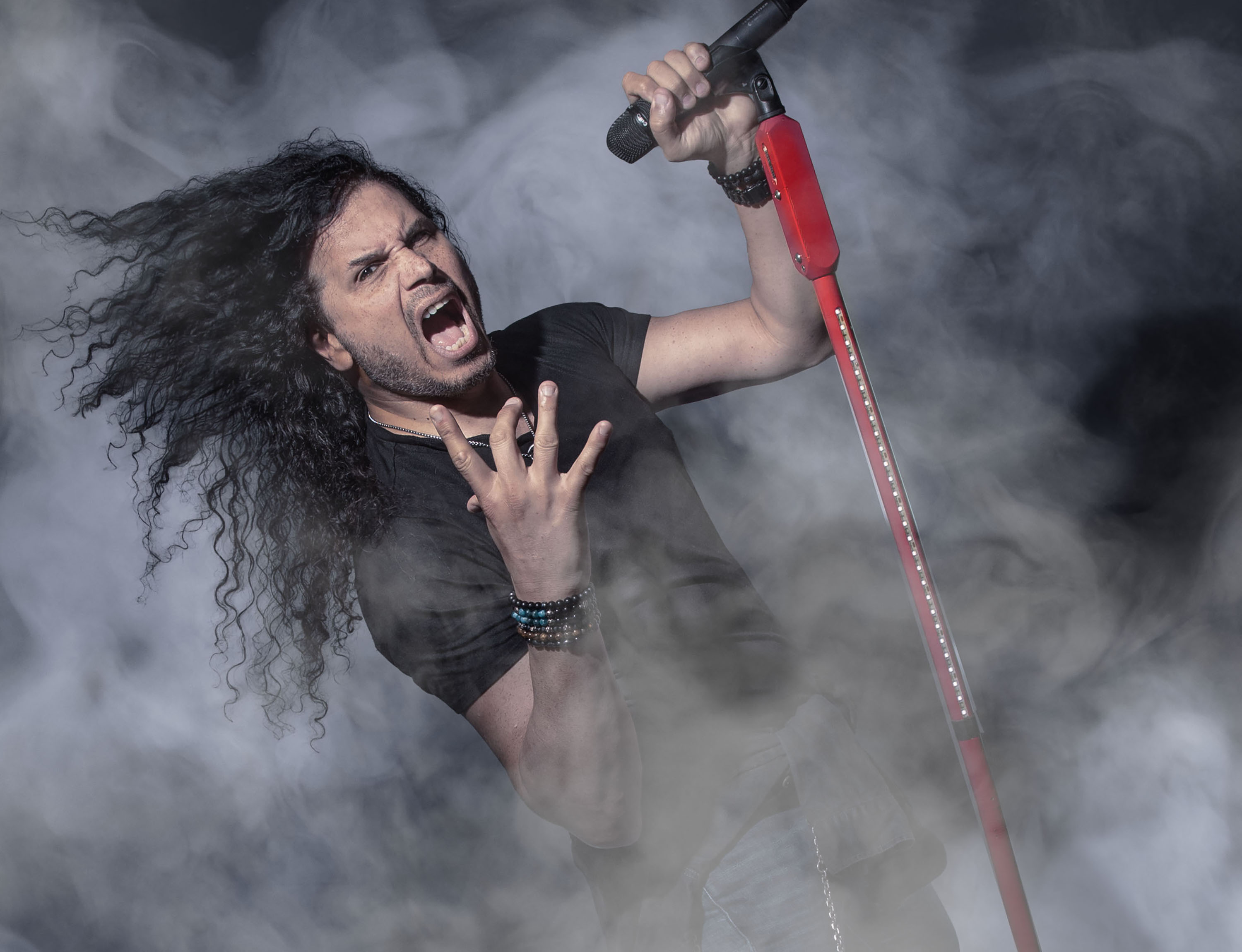
Dave Walker (Black Sabbath)
Dave Walker’s impressive rock resume includes time with Savoy Brown and Fleetwood Mac in the ‘60s and ‘70s, but his stint with Black Sabbath remains a lesser-known chapter. “They were friends of mine in California,” Walker said, “and when Ozzy [Osbourne briefly] decided to leave, I was playing in California with this band called Mistress.” Walker flew to England and joined Sabbath, even performing “War Pigs” and an early version of “Junior’s Eyes” on the BBC show Look Hear in January 1978. He also collaborated on new songs, saying, “I wrote a shitload of lyrics, none of which ever got used.” When Osbourne returned shortly after, Walker’s time with Black Sabbath ended abruptly.
Ron Keel (Black Sabbath)
Ron Keel briefly stepped into Black Sabbath’s revolving frontman role in 1984 after Ian Gillan’s departure. Though Ozzy Osbourne and Ronnie James Dio are the most iconic Sabbath voices, Keel’s stint is a lesser-known chapter. He recorded a few demos but clashed with producer Spencer Proffer. “Spencer – for whatever reason, ego probably – was trying to turn Black Sabbath into an ’80s hair-band,” Keel explained. “That is not Sabbath; they’re the iconic founding fathers of heavy metal. You don’t take Sabbath and turn them into an ’80s metal band like Ratt or Motley Crue.” The tension led to the deal falling apart. “Sabbath said, ‘Screw you, we’re not having this,’ and I got caught in the crossfire,” Keel recalled.

David Donato (Black Sabbath)
David Donato had a brief brush with Black Sabbath in the mid-1980s, recording some demos with the band. His time with them might have gone unnoticed if not for a Kerrang magazine visit to the studio. A photo snapped that day, featuring Donato alongside Sabbath, sparked rumors that he was their new frontman. However, Tony Iommi later clarified the situation. “We never actually had him in as part of the band,” Iommi said, adding that the photo “suddenly made Donato part of the band according to everybody else.”
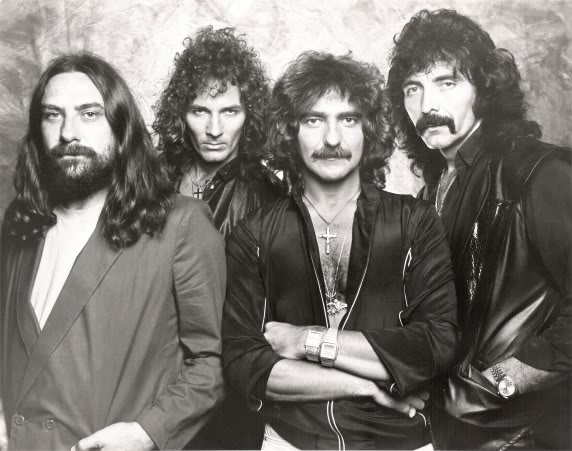
Jeff Fenholt (Black Sabbath)
After parting ways with David Donato, Black Sabbath co-founder Tony Iommi brought in an unexpected contender for vocalist—Jeff Fenholt. Known for his role in Broadway’s Jesus Christ Superstar, Fenholt seemed like an unusual fit for the heavy metal pioneers. He recorded some demos with Sabbath, but the collaboration didn’t pan out. Fenholt ultimately found his niche elsewhere, enjoying a thriving career as a Christian rocker instead.
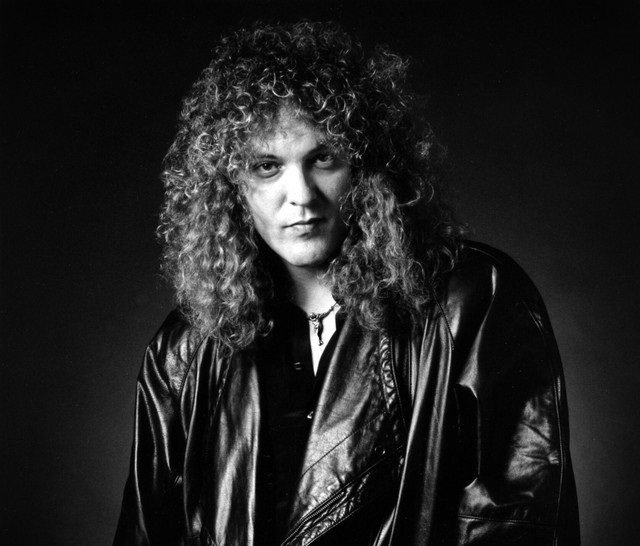
Ray Gillen (Black Sabbath)
Black Sabbath swiftly hired Ray Gillen to cover the remaining gigs after Glenn Hughes sustained a throat injury during the 1986 Seventh Star tour. After that, Gillen remained and started recording The Eternal Idol’s vocals. However, he left before the album was completed due to creative disputes. The Eternal Idol was eventually released in November 1987 after Tony Martin took over and rerecorded the vocals. Despite his brief tenure with Sabbath, Gillen had a significant influence on the band’s changing sound.

Chris Dennis (Pink Floyd)
Chris Dennis was part of an early version of Pink Floyd, performing with Roger Waters, Richard Wright, Nick Mason, and Syd Barrett. However, his time with the band was short-lived. As a member of the Royal Air Force, Dennis was sent to Bahrain, but he later admitted he likely would have left anyway due to creative differences with Waters. “I wasn’t into the music they were playing. I wanted to play blues music,” he said. Despite his brief stint, Dennis has no regrets. “I helped start the biggest rock band in the world, and I got to hang out with Jimi Hendrix—that’s enough for me.”

Bekka Bramlett (Fleetwood Mac)
By the mid-’90s, Fleetwood Mac was far from the classic lineup fans knew and loved. With Lindsey Buckingham, Christine McVie, and especially Stevie Nicks missing, co-founders Mick Fleetwood and John McVie toured with a new lineup, including Bekka Bramlett, daughter of ’70s rock legends Delaney and Bonnie Bramlett. In an interview with Rolling Stone, Bramlett confessed she knew the gig was temporary: “I knew this was a dangerous job. I knew I was facing tomatoes.” She also added, “I didn’t want to wear a top hat… I wanted to be me.” When Nicks returned in 1997, Fleetwood admitted the band should’ve toured under a different name.

Xeno (Cheap Trick)
Randall Curtis Hogan, better known as Xeno, was Cheap Trick’s original lead singer. He performed with the band in Wisconsin and Illinois as they worked on building their name. Xeno’s talent caught the eye of Straight Up, a glam-rock band from Minnesota with a strong fanbase. “They showed up in a white limo and offered me $250 a week if I joined their band, which was a lot for a 21-year-old single guy,” Xeno recalled. He left Cheap Trick for the offer and was replaced by Robin Zander.

Johnny Edwards (Foreigner)
In 1990, Foreigner faced a big change when Lou Gramm left the band. Mick Jones considered bringing in a big-name vocalist but eventually offered the job to Johnny Edwards, who had been leading the band Wild Horses. Initially hesitant, Edwards was convinced by Jones’ pitch. “The more I got to know them, the more I felt like, ‘Wow, they really do want to try to start fresh,’” Edwards said. Despite his efforts, 1991’s Unusual Heat was a commercial flop, and fans didn’t warm to Edwards’ style, which was different from Gramm’s. “Every time we walked out [on stage], you’d have to be aware that there are a lot of people who are going to be skeptical,” Edwards admitted. In 1992, Gramm returned, ending Edwards’ brief time with Foreigner.
Al Atkins (Judas Priest)
Al Atkins was the original frontman of Judas Priest, co-founding the band in 1969. After several lineup changes and struggles, he left in 1973 when things weren’t progressing. “Without a record deal and the backing we needed, I just couldn’t survive anymore, so I decided to get a haircut and a 9-to-5 job,” Atkins told The Examiner. He was replaced by Rob Halford, whose unique high-range vocals helped take the band to the next level. Despite his departure, Atkins co-wrote several songs that appeared on Judas Priest’s first two albums. Though he wasn’t part of the band’s later success, his influence was undeniable.
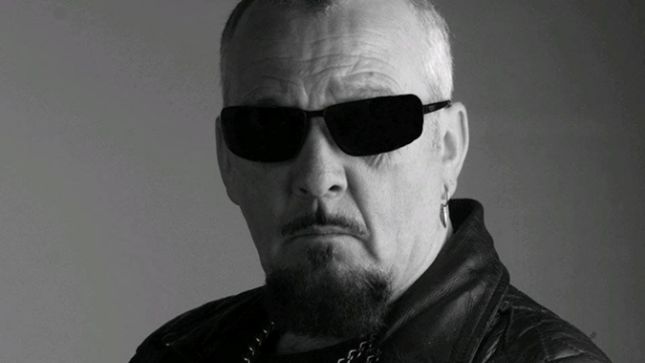
Paul Day (Iron Maiden)
Paul Day joined Iron Maiden as their lead singer in late 1975, despite having no prior experience. He had seen Steve Harris performing at a local pub and decided to give it a shot. However, his lack of experience led to his dismissal in October 1976. “What happened to me, I think, was quite reasonable,” Day admitted. “That was my first real band. I never, ever sang with a drummer before, so I had zero experience.” Day struggled to meet Harris’s expectations of being more commanding and engaging with the audience. Ultimately, his time with the band taught him valuable lessons that shaped his future.
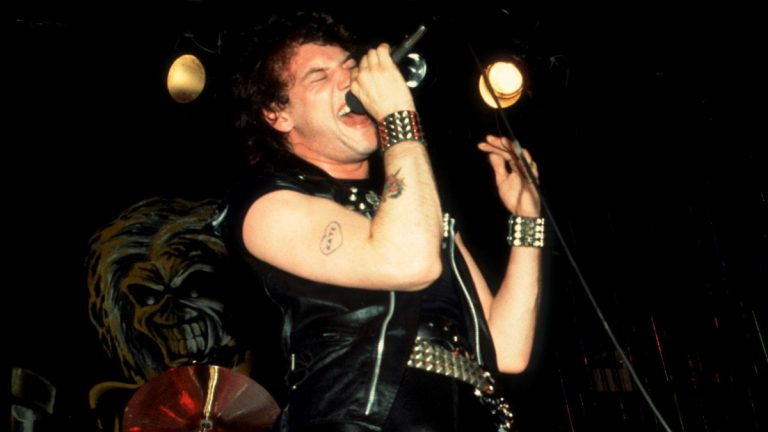
Jeff Jones (Rush)
Ironically, Jeff Jones only performed with Rush for one event. In September 1968, he played with drummer John Rutsey and guitarist Alex Lifeson at the Coff-In, a coffee cafe in a basement. But Jones canceled to go to a party when the band was supposed to perform there again a week later. To fill in, Lifeson immediately called in bassist Geddy Lee, with whom he had previously jammed. Lee would go on to become Rush’s legendary bassist and vocalist, so that choice would permanently alter the band’s future.

Ray Wilson (Genesis)
When Phil Collins left Genesis in March 1996, Tony Banks and Mike Rutherford decided to keep the band alive. They brought in Ray Wilson, lead singer of the Scottish rock band Stiltskin, as their new frontman. The result was 1997’s Calling All Stations, an album that received poor reviews and didn’t meet sales expectations. As Genesis struggled to sell tickets for their concerts, the writing was on the wall. Wilson recalled, “They basically phoned me up and said, ‘Ray, we’re not continuing.’… They just said, ‘We’ve decided not to continue because the market doesn’t want us.'” It marked the end of that Genesis chapter.
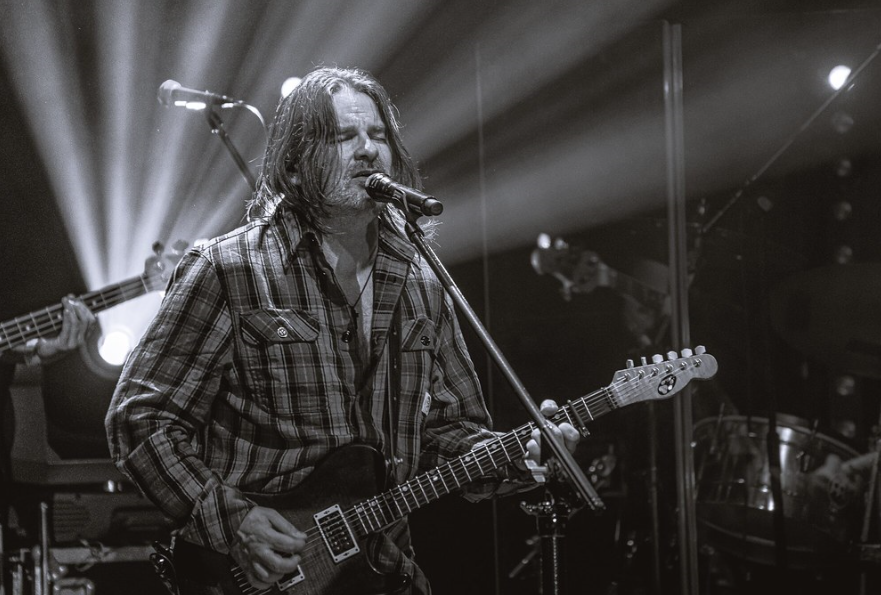
Nicholas Mackley and Paul Holland (Def Leppard)
Before they became Def Leppard, the band was called Atomic Mass, with Nicholas Mackley as the original lead singer. Mackley led the group for just three months in 1977, and the band often rehearsed in his parents’ basement while still in school. In October 1977, Mackley was replaced by Paul Holland, but Holland’s time with the band was short-lived. By January 1978, Joe Elliott took over as the new frontman, and the rest, as they say, is history.
Greg Leon (Motley Crue)
Greg Leon was part of the Los Angeles hard-rock scene in the late ’70s and early ’80s, leading a band called Suite 19, which included future Motley Crue drummer Tommy Lee. In 1981, Leon was invited to join Motley Crue after Nikki Sixx and Lee teamed up, but after rehearsing with them, he decided it wasn’t the right fit. While Crue went on to become one of the world’s biggest bands, Leon had success with Quiet Riot, Dokken, and his own band, the Greg Leon Invasion.
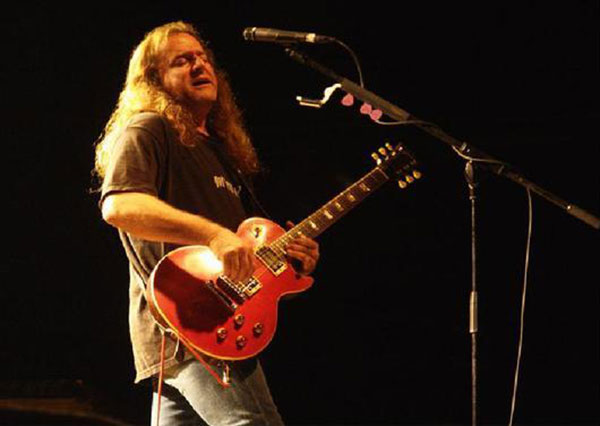
Werner Hoyer (Scorpions)
Scorpions, formed in 1965 by guitarist Rudolf Schenker, initially had Schenker as the lead vocalist. But by 1967, he realized they needed a dedicated singer and brought in 15-year-old Werner Hoyer. However, Hoyer’s time with the band was short-lived, lasting less than a year before he was replaced by Bernd Hegner. It’s important to note that Werner Hoyer is not the same person who later became a politician and the President of the European Investment Bank, as some online sources have mistakenly claimed.
Chester Bennington (Stone Temple Pilots)
Chester Bennington played with Stone Temple Pilots for two years, but his most memorable period was as the frontman of Linkin Park. Following Scott Weiland’s second and last leave, he joined the band in 2013. Bennington traveled and even put out an EP called High Rise while he was with STP. He went on to work on Linkin Park after the collaboration was over, securing his place in rock history alongside both legendary bands.
